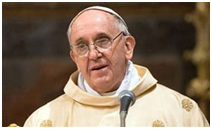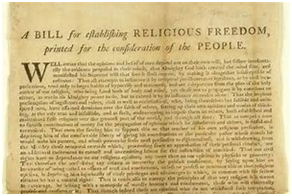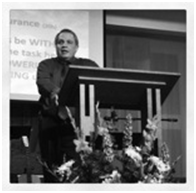[vc_row][vc_column][vc_single_image image=”949″ img_size=”full” alignment=”center”][vc_custom_heading text=”“A Piece of My Mind”” font_container=”tag:h1|font_size:50px|text_align:center|color:%232633ef” google_fonts=”font_family:Bitter%3Aregular%2Citalic%2C700|font_style:700%20bold%20regular%3A700%3Anormal”][vc_custom_heading text=”January 2018 Newsletter” font_container=”tag:h1|font_size:30px|text_align:center|color:%232633ef” google_fonts=”font_family:Bitter%3Aregular%2Citalic%2C700|font_style:700%20bold%20regular%3A700%3Anormal”][/vc_column][/vc_row][vc_row][vc_column width=”2/3″][vc_column_text]
Advancing Christian Faith and Values,
Defending Religious Liberty for All,
Supporting Civility and the Common Good
through Preaching, Teaching, Writing, Activism and Reasoned Conversations
www.donaldshoemakerministries.com[/vc_column_text][/vc_column][vc_column width=”1/3″][vc_single_image image=”687″ img_size=”full” alignment=”center”][/vc_column][/vc_row][vc_row][vc_column width=”1/2″][vc_column_text]
Roe v. Wade January 22, 1973
45 Years later the Abortion Debate Still Rages
[/vc_column_text][/vc_column][vc_column width=”1/2″][vc_column_text]
“Deliver us from evil”
Should the Words of “The Lord’s Prayer” Be Changed?
 [/vc_column_text][/vc_column][/vc_row][vc_row][vc_column][vc_column_text]
[/vc_column_text][/vc_column][/vc_row][vc_row][vc_column][vc_column_text]
 Roe v. Wade at 45 – Abortion Debate Still Rages
Roe v. Wade at 45 – Abortion Debate Still Rages
By Donald P. Shoemaker
Reprinted from the Long Beach, CA Press-Telegram, January 22, 1998.
A personal note in 2018:
I believe that the observations I made in 1998 are as relevant today as when they were written. The writing below has slight edits and bold italics are added. Since this op-ed was written 20 years ago, my aunt and uncle have both passed away.
My aunt and uncle live in a fine Southern California retirement community. During a recent visit I was taken by my uncle on a tour of the community’s nearly completed state-of-the-art facility for Alzheimer’s patients.
We looked inside one room that would soon house a patient. There was no mirror in the bathroom for there is no need for a mirror. The patient who would eventually stay there is not aware of who he or she is.
Relatives of the patients will be able to visit with them in a comfortable sitting area. But there will be no depth of communication, for the Alzheimer’s patient no longer has a capacity for an “I-Thou” relationship.
As this disease takes its toll, connection with the past and present is lost. All sense of futurity is gone.
When my uncle and I tried to leave we had a problem. There was no way to open the facility’s door from the inside without knowing a special code. This is needed because Alzheimer’s patients no longer have a sense of “here” or “there” and must be protected in their movements lest they wander aimlessly and into danger. We located a worker who could let us out.
The best of care will be provided for these dependent patients. And so it should be, for the spark of human dignity remains in them. As Christian teaching would affirm, they yet retain, in spite of their physical brokenness, the Image of God.
Since my visit to that care facility I have often thought of the issue of “personhood” and how a debate on human personhood and abortion has raged for three decades since permissive abortion laws were first put on the books in the 1960’s. Originally designed for “those truly tough cases,” the laws triggered an abortion avalanche and were themselves swept away by the U.S. Supreme Court’s Roe v. Wade decision 25 years ago today [January 22, 1973].
“Right to Life” advocates have argued for a genetic understanding of personhood. Human life, it is said, begins at conception and ought to be respected and protected from violent assault from then until natural death. Personhood is tied to the biological fact of being human, one of “us” rather than an “it” or one of “them.” Right to Life advocates have argued for the full person of unborn humans or at least that enough claim to personhood exists for the life of the unborn to be worthy of protection.
Others have seen personhood as a developing value throughout the prenatal state. In this case, our unborn have a greater and greater claim to life and protection and any termination of their existence requires increasing grounds for justification the longer they exist in utero. As a result, these people join with the “Right to Life” advocates in wanting to ban late-term abortions, especially the gruesome and barbaric “partial birth” (dilation and extraction) procedure.
Defenders of permissive abortion laws, of course, do not see matters that way. Personhood is connected to socializing capabilities, or perhaps to intellectual capacities.
Philosopher Mary Ann Warren has argued that there are five traits central to the concept of personhood which we can summarize as (1) consciousness, (2) reasoning, (3) self-motivated activity, (4) the capacity to communicate and (5) the presence of self-concepts and self-awareness. Not all of these need be present for a “person” to exist, but a measure of them must exist and a being that lacks all of them is certainly not a “person” in a moral sense.
The late medical ethicist Joseph Fletcher had a long list of personhood criteria, including self- awareness, time consciousness, a sense of futurity, a sense of the past, the capability of relating to others, communication and control of existence.
Criteria like these clearly exclude the unborn from the realm of “persons.” Abortion can be endorsed as an acceptable moral practice secured, as the Court saw it, by a “right to privacy” implicit in the U.S. Constitution.
What may surprise others but which certainly does not escape the notice of thinkers like these is that infants aren’t “persons” by this standard either. Nor are the comatose and others who lack self- awareness and self-control. Infants lack a moral claim to personhood and therefore are disposable, although we may value them for their potential and charm or for other utilitarian reasons. *
Which brings me full circle to the excellent care facility for Alzheimer’s patients. By the thinking that has prevailed to give us abortion, these patients are not persons. Unlike the unborn, their futurity and their social and intellectual potential are gone. As their disease has progressed, they have gradually but surely lost all claim to the care and love and protection personhood would afford.
In Roe v. Wade, the court threw up its hands and professed agnosticism on the issue of when personhood begins. Incredibly, it then proceeded to adopt a particular view of personhood (you have value at birth) and imposed a model of prenatal “trimesters” and a latitude which, in effect, have given us abortion on demand. ** The court never allowed the open public debate and legislative deliberation on this issue that is appropriate in a free and democratic society.
When the Supreme Court ruled on doctor-assisted suicide last summer ***, this practice did not receive the constitutional “green light” its advocates had hoped for. One might have expected the court to declare a right to assisted suicide on the same “right to privacy” grounds that gave us abortion on demand. But the court saw the need to guarantee “an earnest and profound debate about the morality, legality and practicality of physician-assisted suicide [that should take place] in a democratic society.”
That statement may be the closest thing we will hear from the court that sounds like an apology for Roe v. Wade. Rather than resolving the great debate, Roe v. Wade fueled the most acrimonious polarization of our time which shows no signs of abating.
* One medical ethicist would designate infants (up to age two) “proximate persons.”
** However, Roe v. Wade did explicitly reject a right to “abortion on demand.”
*** Washington v. Glucksberg (1997) and Vacco v. Quill (1997)[/vc_column_text][/vc_column][/vc_row][vc_row][vc_column][vc_column_text]
Bible Insight – “Lead Us Not into Temptation”
“And lead us not into temptation, but deliver us from evil”
– Matthew 6:13 (King James Version)
 Pope Francis created quite a stir when he recently said that the words [in Italian] “non ci indurre in tentazione” (“Lead us not into temptation”) in the English version are not correct, because, he said, God does not actively lead us into temptation. (Andrea Gagliarducci, National Catholic Register, 12/12/17)
Pope Francis created quite a stir when he recently said that the words [in Italian] “non ci indurre in tentazione” (“Lead us not into temptation”) in the English version are not correct, because, he said, God does not actively lead us into temptation. (Andrea Gagliarducci, National Catholic Register, 12/12/17)
Now, this is not to be regarded as infallible papal teaching anymore than Donald Trump’s tweets should be added to the Constitution. On a scale of
1-10, #1 being “shooting from the hip” and #10 being “speaking ex cathedra [from the Chair of Saint Peter]”, this may have been a 3 or a 4. I don’t know.
At any rate, this development gives us a chance to look at this marvelous prayer request, given by Jesus for his followers to recite frequently.
1. The translation “lead us not into temptation” ain’t broke and don’t need fixin’!
This prayer request comes from Matthew 6:13 (Luke 11:4 is identical)–
καὶ μὴ εἰσενέγκῃς ἡμᾶς εἰς πειρασμόν (kai mē eisenenkes hēmas eis peirasmon). Literally: “and do not lead us into temptation (testing).”
Any “translation” that does not reflect this basic thought is not a translation. It is commentary, opinion. If the change is called a “translation”, it is wrong.
2. That God would actively tempt a follower of his into moral failure is abhorrent and unbiblical.
“When tempted, no one should say, ‘God is tempting me.’ For God cannot be tempted by evil, nor does he tempt anyone; but each person is tempted when they are dragged away by their own evil desire and enticed.” (James 1:13-14 New International Version).
We simply may not “pass the buck to God”, making him at fault for our failures rather than ourselves. Remember Adam’s words to God? “The woman you put here with me—she gave me some fruit from the tree, and I ate it.” – Genesis 3:12 (italics mine, but they might as well have been Adam’s).
“The Pope’s intent seems to be to emphasize that God does not directly ‘tempt’ us, but instead, the permissive will of God allows people to be tempted because of their sinfulness” (Gagliarducci, NCR). I would agree.
3. Nonetheless, God’s agency in temptation cannot be reduced to mere passive permissiveness.
If you “permit” your toddler to run into the street when you know the danger and could prevent it, I would find it hard to absolve you or let you hide behind a distinction between active and passive voices.
Matthew 4:1 is rather strong in describing the Holy Spirit’s agency when Jesus faced temptation. “Then Jesus was led [anēchthē, passive verb with the Spirit as the active agent] by the Spirit into the wilderness to be tempted by the devil.” Mark 1:12 is even stronger: “the Spirit sent him out [ekballei—“cast him out, drove him”] into the wilderness.” The same Spirit that descended on Jesus at baptism now drives him forth to encounter temptation.
So we have (1) God’s Spirit (2) strongly pushing Jesus into the wilderness
(3) for the purpose of being tempted by the Devil. But the Devil, not the Spirit of God, is the “tempter.”
While temptations we face are of the same kind Jesus faced, the strength of the tempting pressure against him was unimaginable—more, I think, than we would ever face. This is significant, because some Christians talk of the temptation of Jesus as if the Devil were throwing darts that bounced harmlessly off Jesus as if he were Superman. *
Also very significant: Jesus resisted temptation by using the same resource available to you and me when we are tempted—the properly-applied Word of Scripture (see Matthew 4:1-11). Hence, we are told to take “the shield of faith” and “the sword of the Spirit, which is the word of God” when we face struggles against evil (Ephesians 6:16-17 in context).
4. God’s purpose in permitting temptation is to strengthen, refine, and season us, not to debilitate, corrupt and defeat us.
I once bought some bolts and quickly found out why they were so cheap. The bolt twisted and broke under the power of my wrench. That’s why we must buy hardened tools and bolts. They will not fail when they need to be strong. So it is with the purpose and outcome of our “testings.”
Jesus permitted Peter to fall victim to his own spiritual hyper-self-confidence. He, like the other disciples, was sure he would not abandon his Lord when the going got tough.
But he did fail and fall. He abandoned Jesus. Even worse, he denied he knew Jesus in the Hour of Challenge (or Hour of Confession).
Jesus warned him of this but also reassured him with one of his greatest teaching moments: ““Simon [Peter], Simon, Satan has asked to sift all of you as wheat. But I have prayed for you, Simon, that your faith may not fail. And when you have turned back, strengthen your brothers” (Luke 22:31). Here is a warning, a prayer, a promise and a reassurance on how God would use this failure in a positive way.
God knows our breaking point, and he will faithfully keep us from reaching that breaking point, if we will simply follow his directives and provisions
(1 Corinthians 10:13).
When through fiery trials thy pathways shall lie,
My grace, all sufficient, shall be thy supply;
The flame shall not hurt thee; I only design
Thy dross to consume, and thy gold to refine.
– “How Firm a Foundation” (anonymous, Rippon’s Selection of Hymns, 1787)
* One of my seminary professors once compared the temptation of Jesus to putting a tiny pea out on a bridge. It “tested” the bridge in an infinitesimal way—but it was still a test! This is baloney and gives us a Superman Jesus who is not really “tested in all points like we are” and not really able to sympathize with our weaknesses (Hebrews 4:15).
Without denying the divinity of Jesus, Christians must equally confess his full, multi-dimensional humanity. Jesus and Satan weren’t just sitting there role-playing.[/vc_column_text][vc_row_inner][vc_column_inner][vc_column_text]
 February 19: The Presidents Day Un-Celebration — Honoring Not Just the Great, But All U.S. Presidents
February 19: The Presidents Day Un-Celebration — Honoring Not Just the Great, But All U.S. Presidents
By Michael Josephson
If you’re not going to school or work today [February 19], it’s because it’s a national holiday. The country used to celebrate the birthdays of George Washington and Abraham Lincoln separately, but in 1971 Richard Nixon and Congress, in order to create a perpetual three-day weekend, merged the two holidays into a brand new one called Presidents Day, to honor all U.S. presidents.
The end result is that we equate the lives and leadership of two of the greatest men in our history with those of a diverse parade of men ranging from extraordinary to mediocre, and noble to dishonorable. What’s more, we reduce this and other days set aside to honor crucial people and historical events to no more than a day off. I doubt whether you’ll be reading many articles or seeing TV specials reminding you of the magnificent character and contributions of Washington or Lincoln.
I fear that the failure of our government, our schools and our media to emphatically remind us about our roots in a way that nurtures both pride and gratitude fosters an unhealthy, self-absorbed entitlement mentality. Sure, we’ll gladly take the day off for Presidents’ Day, Memorial Day and Veterans Day, and shoot off fireworks on July 4th. But we’re too busy or blasé to pause to reconnect with our heritage and experience real appreciation for our heroes and their sacrifices.
Despite the initial surge of patriotism following September 11, I fear Americans are an increasingly ungrateful people, unwilling to appreciate what we have and why we have it. And we wonder why our kids don’t appreciate what they have and what we do for them.
If we keep treating our most important values as meaningless relics, that’s exactly what they’ll become.
Used by permission: The Josephson Institute of Ethics. Bold italics added.
I highly recommend the work of the Institute. www.josephsoninstitute.org[/vc_column_text][/vc_column_inner][/vc_row_inner][vc_row_inner][vc_column_inner][vc_column_text]
Religious Liberty Vigilance –
 “To compel a man to furnish contributions of money for the propagation of opinions which he disbelieves is sinful and tyrannical.”
“To compel a man to furnish contributions of money for the propagation of opinions which he disbelieves is sinful and tyrannical.”
– Thomas Jefferson (Virginia Statute for Religious Freedom—adopted January 16, 1786)
[/vc_column_text][vc_column_text]
 The Virginia Statute for Religious Freedom (1786)
The Virginia Statute for Religious Freedom (1786)
For over 20 years, U.S. presidents have designated January 16 as “Religious Freedom Day” to recognize the adoption of this historic document (see addendum). It was the foundation for the idea of religious freedom found in the First Amendment to the Constitution. It begins…
“Whereas, Almighty God hath created the mind free; that all attempts to influence it by temporal punishments or burthens, or by civil incapacitations tend only to beget habits of hypocrisy and meanness, and are a departure from the plan of the holy author of our religion, who being Lord, both of body and mind yet chose not to propagate it by coercions on either, as was in his Almighty power to do, that the impious presumption of legislators and rulers, civil as well as ecclesiastical, who, being themselves but fallible and uninspired men have assumed dominion over the faith of others, setting up their own opinions and modes of thinking as the only true and infallible, and as such endeavouring to impose them on others, hath established and maintained false religions over the greatest part of the world and through all time…”
The opening of this wordy, yet most valuable, one-sentence document gives us points to ponder:
• Is not a religious foundation (namely, the reality of an Almighty God) acknowledged in this document?
• Is there not a divine purpose for humanity found in the creative action of God, who, as Lord of body and mind, could have coerced the bodies and minds of people but chose not to? Does this not support liberal democracies and denounce tyrannies?
• Is it not possible for impious civil legislators to impose fallible secular ideologies upon people today, even as fallible religious ideologies have been imposed in the past and even today?
• Does not secular ideology continue to impose unacceptable burdens on people of faith, just as dominant religions have done in the past?
Food for thought. The entire document can be found at:
https://www.au.org/files/pdf_documents/virginia-statute-for.pdf[/vc_column_text][/vc_column_inner][/vc_row_inner][/vc_column][/vc_row][vc_row][vc_column][vc_column_text]
 Don’s Recent Sermons
Don’s Recent Sermons
Listen to Don’s sermons delivered at Grace Community Church. Go to: http://gracesealbeach.org/resources/sermons
Then go to the appropriate date.
NEW! January 21, 2018 – “Prayer in the Hour of Crisis” (Jesus’ prayer in the Garden of Gethsemane, Matthew 26:36-46)
October 29, 2017 – “Reformation Reminder—The Freedom of the Christian”
July 30, 2017 – “Leaders Training Leaders” (The ministry of Priscilla and Aquila with Apollos, Acts 18:24-28)
My Website: www.donaldshoemakerministries.com
Contact me at: donaldshoemakerministries@verizon.net</>
[/vc_column_text][/vc_column][/vc_row][vc_row][vc_column][vc_column_text]
Addendum
Presidential Proclamation
Religious Freedom Day
January 16, 2018
Faith is embedded in the history, spirit, and soul of our Nation. On Religious Freedom Day, we celebrate the many faiths that make up our country, and we commemorate the 232nd anniversary of the passing of a State law that has shaped and secured our cherished legacy of religious liberty.
Our forefathers, seeking refuge from religious persecution, believed in the eternal truth that freedom is not a gift from the government, but a sacred right from Almighty God. On the coattails of the American Revolution, on January 16, 1786, the Virginia General Assembly passed the Virginia Statute of Religious Freedom. This seminal bill, penned by Thomas Jefferson, states that, “all men shall be free to profess, and by argument to maintain, their opinions in matters of religion, and that the same shall in no wise diminish, enlarge, or affect their civil capacities.” Five years later, these principles served as the inspiration for the First Amendment, which affirms our right to choose and exercise faith without government coercion or reprisal.
Today, Americans from diverse ethnic and religious backgrounds remain steadfast in a commitment to the inherent values of faith, honesty, integrity, and patriotism. Our Constitution and laws guarantee Americans the right not just to believe as they see fit, but to freely exercise their religion. Unfortunately, not all have recognized the importance of religious freedom, whether by threatening tax consequences for particular forms of religious speech, or forcing people to comply with laws that violate their core religious beliefs without sufficient justification. These incursions, little by little, can destroy the fundamental freedom underlying our democracy. Therefore, soon after taking office, I addressed these issues in an Executive Order that helps ensure Americans are able to follow their consciences without undue Government interference and the Department of Justice has issued guidance to Federal agencies regarding their compliance with laws that protect religious freedom. No American – whether a nun, nurse, baker, or business owner – should be forced to choose between the tenets of faith or adherence to the law.
The United States is also the paramount champion for religious freedom around the world, because we do not believe that conscience rights are only for Americans. We will continue to condemn and combat extremism, terrorism, and violence against people of faith, including genocide waged by the Islamic State of Iraq and Syria against Yezidis, Christians, and Shia Muslims. We will be undeterred in our commitment to monitor religious persecution and implement policies that promote religious freedom. Through these efforts, we strive for the day when people of all faiths can follow their hearts and worship according to their consciences.
The free exercise of religion is a source of personal and national stability, and its preservation is essential to protecting human dignity. Religious diversity strengthens our communities and promotes tolerance, respect, understanding, and equality. Faith breathes life and hope into our world. We must diligently guard, preserve, and cherish this unalienable right.
NOW, THEREFORE, I, Donald J. Trump, President of the United States of America, by virtue of the authority vested in me by the Constitution and the laws of the United States, do hereby proclaim January 16, 2018, as Religious Freedom Day. I call on all Americans to commemorate this day with events and activities that remind us of our shared heritage of religious liberty and teach us to secure this blessing both at home and abroad.
IN WITNESS WHEREOF, I have hereunto set my hand this sixteenth day of January, in the year of our Lord two thousand eighteen, and of the Independence of the United States of America the two hundred and forty-second.
DONALD J. TRUMP
[/vc_column_text][/vc_column][/vc_row]

